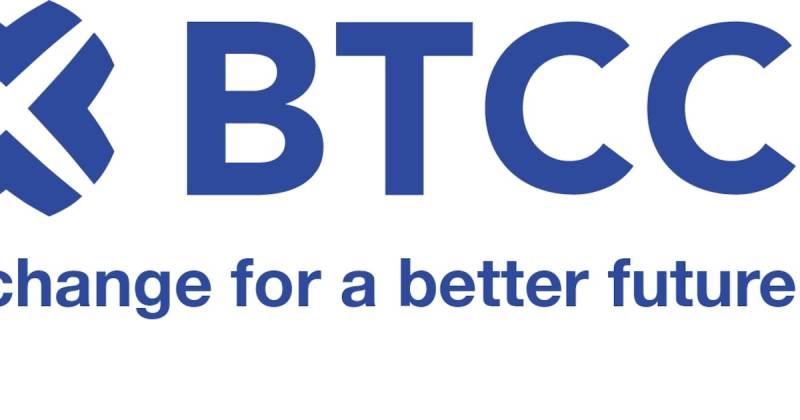 |
|
 |
|
 |
|
 |
|
 |
|
 |
|
 |
|
 |
|
 |
|
 |
|
 |
|
 |
|
 |
|
 |
|
 |
|
公共区块链本质上呈现出透明度和隐私之间的悖论。该设计的基础要求共享交易数据,这对用户隐私构成了威胁。许多加密隐私工具都存在致命缺陷,破坏了去中心化。追求隐私,谨防这七宗罪。

Are Public Blockchains Inherently Antithetical to Privacy?
公共区块链本质上与隐私是对立的吗?
The foundational design of public blockchains has long grappled with the inherent tension between transparency and user privacy. The public ledger's very essence necessitates the sharing of transaction data with network participants, making it a breeding ground for surveillance, coercion, and unintended consequences.
公共区块链的基础设计长期以来一直在努力解决透明度和用户隐私之间固有的紧张关系。公共分类账的本质需要与网络参与者共享交易数据,这使其成为监视、胁迫和意外后果的滋生地。
Seven Deadly Sins of Crypto Privacy Tools: A Cautionary Tale
加密隐私工具的七宗罪:一个警示故事
In the quest for privacy solutions, numerous crypto protocols have fallen prey to fatal flaws that compromise user anonymity and undermine the very purpose of decentralization. Here are seven common pitfalls to be wary of:
在寻求隐私解决方案的过程中,许多加密协议都陷入了致命缺陷,这些缺陷损害了用户的匿名性并破坏了去中心化的真正目的。以下是需要警惕的七个常见陷阱:
Sin 1: The Siren Song of Centralization
原罪 1:集权的海妖之歌
In the decentralized realm, centralization is a cardinal sin. It is far easier and cost-effective to maintain a ledger on a centralized database than to navigate the complexities of public blockchains. However, decentralization is the lifeblood of crypto's value proposition, ensuring resilience and eliminating the reliance on centralized institutions.
在去中心化领域,中心化是一大罪过。在集中式数据库上维护分类账比处理公共区块链的复杂性要容易得多,也更具成本效益。然而,去中心化是加密货币价值主张的命脉,确保弹性并消除对中心化机构的依赖。
Privacy protocols must resist the temptation of centralization, which grants developers privileged access to user data. Mechanisms like Viewing Keys should be employed to provide non-discriminatory, user-controlled transparency. Threshold multi-sigs, while well-intentioned, introduce unnecessary trust assumptions and vulnerabilities.
隐私协议必须抵制中心化的诱惑,中心化赋予开发人员访问用户数据的特权。应采用查看密钥等机制来提供非歧视性的、用户控制的透明度。阈值多重签名虽然是出于好意,但却引入了不必要的信任假设和漏洞。
Sin 2: The Unquenchable Thirst for Logging
原罪 2:对伐木的不可抑制的渴望
Privacy tools should be designed with a laser focus on protecting user activity, particularly personally identifiable information. Protocols must resist the temptation to log data that could compromise anonymity, such as IP addresses and browsing history.
隐私工具的设计应重点关注保护用户活动,特别是个人身份信息。协议必须抵制记录可能损害匿名性的数据的诱惑,例如 IP 地址和浏览历史记录。
Sin 3: The Enigma of Encrypted State
原罪 3:加密状态之谜
The allure of a fully encrypted state is understandable, but it comes at a significant cost. Eliminating public auditability undermines one of the fundamental security pillars of blockchains. Without transparency, verifying the integrity of dApps becomes impossible, leaving users vulnerable to exploits and malicious actors.
完全加密状态的吸引力是可以理解的,但它的成本很高。消除公共审计会破坏区块链的基本安全支柱之一。如果没有透明度,就不可能验证 dApp 的完整性,从而使用户容易受到攻击和恶意行为者的攻击。
Sin 4: The Reliance on Gatekeepers
罪四:依赖看门人
Zero-knowledge-based encryption is a powerful tool, but its effectiveness can be compromised by dependencies on specific manufacturers. Relying on proprietary hardware or software introduces single points of failure and undermines the trustless nature of crypto.
基于零知识的加密是一种强大的工具,但其有效性可能会因对特定制造商的依赖而受到影响。依赖专有硬件或软件会引入单点故障,并破坏加密技术的不可信性质。
Sin 5: The Quest for Privacy Purity
罪 5:追求隐私纯洁
Privacy is a compelling narrative, but it should not be pursued at the expense of practicality. Building entirely new blockchains or rollups solely for privacy purposes is often an unsustainable endeavor. Instead, privacy solutions should be integrated into existing chains where users and financial activity are already concentrated.
隐私是一个令人信服的叙述,但不应以牺牲实用性为代价。仅仅出于隐私目的构建全新的区块链或汇总通常是不可持续的努力。相反,隐私解决方案应该集成到用户和金融活动已经集中的现有链条中。
Sin 6: The Burden of Builder Complexity
罪 6:构建器复杂性的负担
Forcing developers to learn and use proprietary languages and ecosystems unnecessarily complicates the development process. Languages like Solidity and Vyper offer cross-chain portability, while Rust and WebAssembly chains introduce fragmentation and accessibility issues.
强迫开发人员学习和使用专有语言和生态系统不必要地使开发过程复杂化。像 Solidity 和 Vyper 这样的语言提供了跨链可移植性,而 Rust 和 WebAssembly 链则引入了碎片和可访问性问题。
Sin 7: The Perils of Immaturity
罪七:不成熟的危险
Privacy technology is not a trivial pursuit. It requires rigorous academic research, extensive audits, and thorough testing. The consequences of poorly implemented privacy measures can be severe, jeopardizing both user identities and financial assets.
隐私技术并不是一项微不足道的追求。它需要严格的学术研究、广泛的审计和彻底的测试。隐私措施实施不当的后果可能很严重,危及用户身份和金融资产。
Conclusion: The Path to Privacy on Public Blockchains
结论:公共区块链的隐私之路
Building on-chain privacy systems is no easy feat, but it is essential to preserve the core principles of decentralization and auditability. By carefully addressing the common pitfalls outlined above, crypto protocols can empower users with privacy while maintaining the integrity and security of the blockchain ecosystem.
构建链上隐私系统并非易事,但保留去中心化和可审计性的核心原则至关重要。通过仔细解决上述常见陷阱,加密协议可以为用户提供隐私保护,同时维护区块链生态系统的完整性和安全性。
The Web3 Privacy Now initiative provides a valuable resource for assessing the privacy levels of various crypto tools. By embracing privacy-first solutions, we can safeguard our online identities and unlock the full potential of decentralized finance.
Web3 Privacy Now 计划为评估各种加密工具的隐私级别提供了宝贵的资源。通过采用隐私优先的解决方案,我们可以保护我们的在线身份并释放去中心化金融的全部潜力。
免责声明:info@kdj.com
所提供的信息并非交易建议。根据本文提供的信息进行的任何投资,kdj.com不承担任何责任。加密货币具有高波动性,强烈建议您深入研究后,谨慎投资!
如您认为本网站上使用的内容侵犯了您的版权,请立即联系我们(info@kdj.com),我们将及时删除。
-

-

-

-

-

- 6个即将到来的Kraken列表,这可能是加密货币的下一件大事
- 2025-04-09 05:00:13
- 每天出现数百种新的加密货币和令牌。许多人毫无价值,但有些可能只是加密货币中的下一个大事。
-

- COTI公布新的以隐私为中心的区块链重塑Web3交易
- 2025-04-09 05:00:13
- 随着COTI的新层2网络的推出,区块链隐私的重大飞跃已经到来。
-

- Qubetics($ TICS)正在塑造区块链互操作性的未来
- 2025-04-09 04:55:12
- 从目的看来,以目前的价格为0.0455美元的60万美元投资将确保约13,186,813个令牌。
-

- 全球加密交易所BTCC通过上市10个趋势山寨币对扩展其现货市场产品
- 2025-04-09 04:55:12
- 这一举动加强了BTCC致力于为全球用户多样化的交易机会。
-

- 该提议需要什么?
- 2025-04-09 04:50:12
- 根据Jiexhuang的说法,如果主要的全球经济体在其战略储备中采用比特币,则可能导致其价值稳定。这次轮班可能

























































